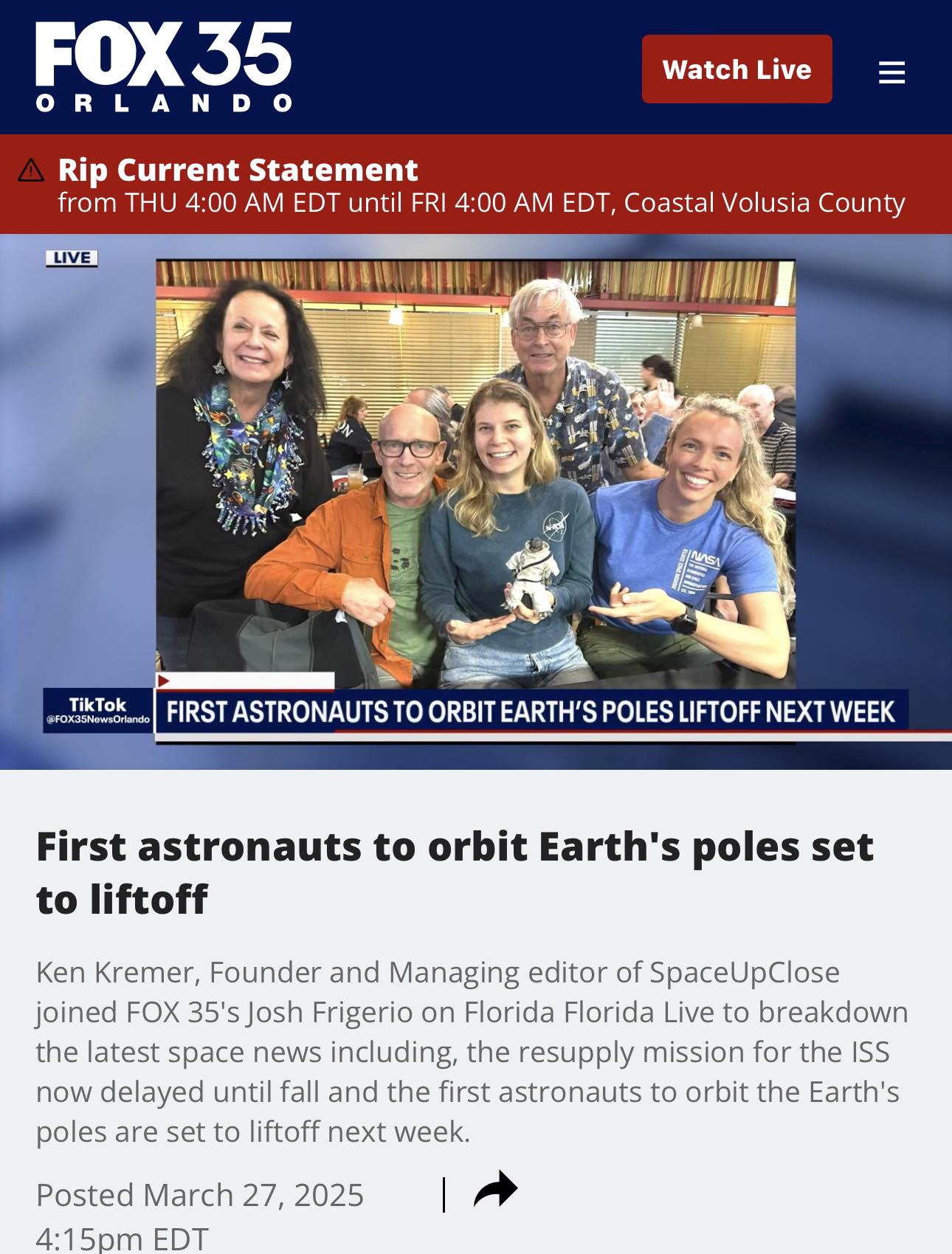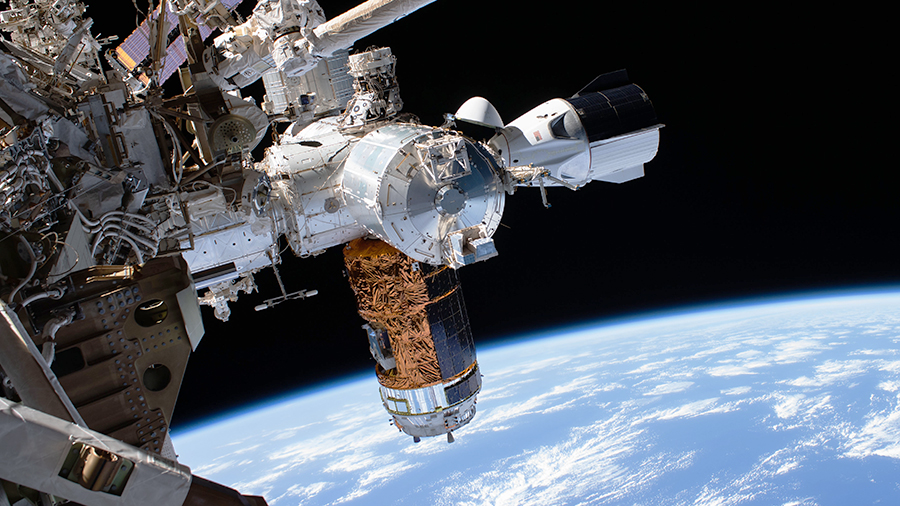
For SpaceUpClose.com & RocketSTEM
CAPE CANAVERAL, FL – NASA Administrator Jim Bridenstine has announced by tweet that the two-man veteran crew of NASA astronauts Robert Behnken and Douglas Hurley will return to Earth in approximately two weeks and depart the International Space Station on Aug. 1 inside their history-making SpaceX Demo-2 Crew Dragon Endeavour test vehicle and splashdown the next day Aug. 2 – weather permitting.
The ‘Return to Earth’ timeline hinges on good weather and sea states which are unpredictable at this time – but gives a target timeline for when the historic SpaceX Demo-2 commercial mission for NASA will conclude – which has been indefinite until now since their blastoff in late May.
“NEWS: We’re targeting an Aug. 1 departure of @SpaceX‘s Dragon Endeavour spacecraft from the @Space_Station to bring @AstroBehnken and @Astro_Doug home after their historic #LaunchAmerica mission. Splashdown is targeted for Aug. 2. Weather will drive the actual date. Stay tuned,” NASA Administrator Jim Bridenstine Friday, July 17.
https://twitter.com/JimBridenstine/status/1284160302842511361
If all goes as planned Behnken and Hurley will have spent 64 days in orbit or just over two months.
The NASA SpaceX Demo-2 test flight mission marks the resumption and restoration of US Human spaceflight capability on American rockets in American spaceships from American soil for the first time in 9 years ! – since the forced retired of NASA’s space shuttles in 2011.
NASA wants to have the Crew Dragon Endeavour return soon and splashdown safely so that all its myriad systems hardware and software can be thoroughly evaluated and certified so that the agency and SpaceX can next proceed forward with confidence with the next astronauts flight on the Crew-1 Dragon mission currently targeting a NET mid-September liftoff from the Florida Space Coast.
The beautiful and flawless blastoff of the SpaceX Crew Dragon spacecraft carrying NASA veteran astronauts Robert Behnken and Douglas Hurley lifted off on the historic test flight at 3:22 p.m. EDT Saturday, May 30, on the company’s Falcon 9 rocket from Launch Complex 39A at NASA’s Kennedy Space Center in Florida bound for the International Space Station (ISS) – to the cheers of tens of thousands of spectators gathered from around America and three days after dismal weather forced a scrub of the first attempt on Wednesday.
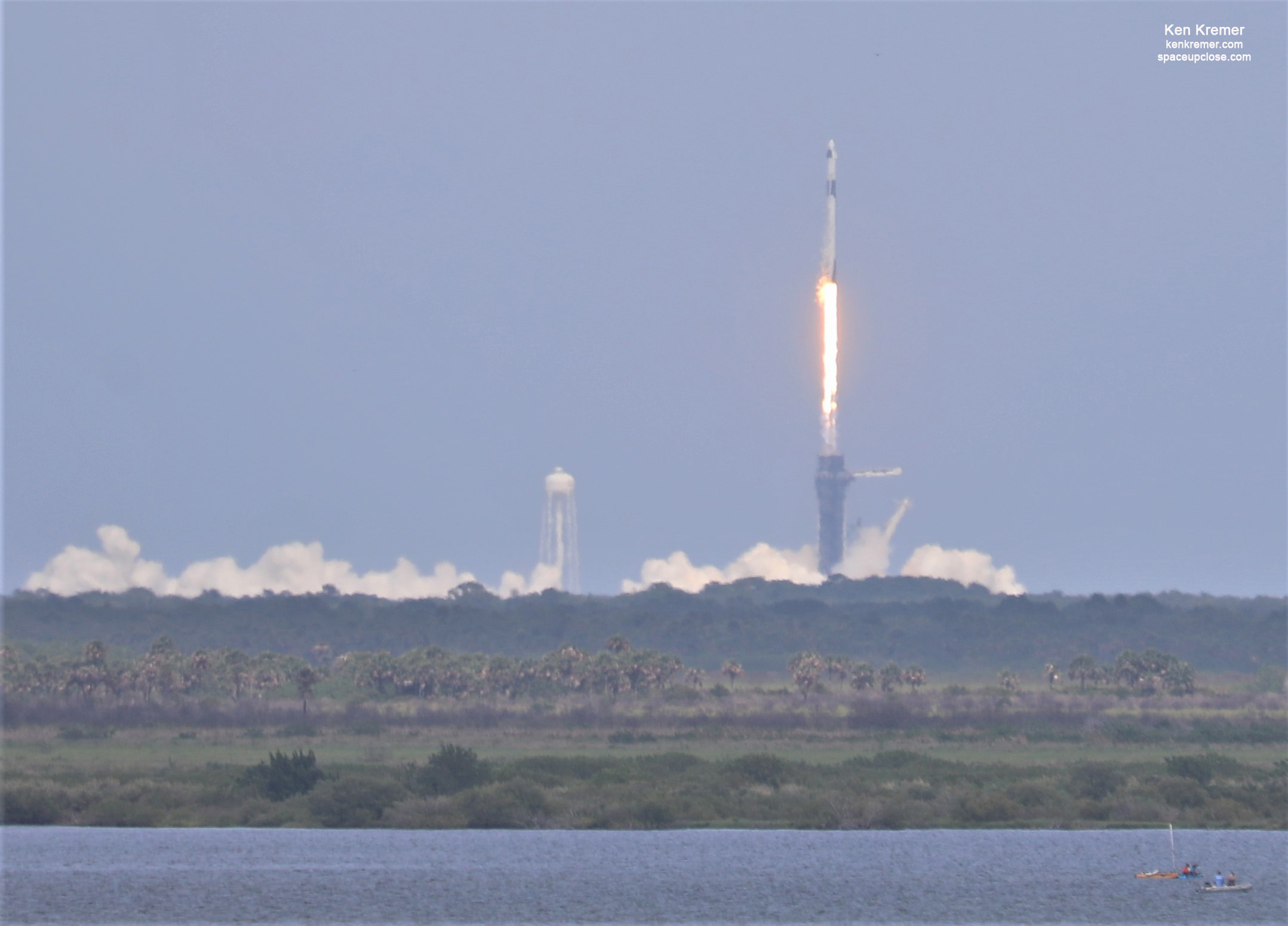
Behnken and Hurley flying aboard the commercial SpaceX Crew Dragon Endeavour safely docked at the ISS Sunday morning, May 31, just 19 hours after the first human launch from US soil for the first time in nine years on a history making and flawless blastoff from the Florida Space Coast.
The newly arrived dynamic duo from the SpaceX Demo-2 test flight mission then gently floated through the opening and joined the thee crewmates of Expedition 63 already aboard ISS.
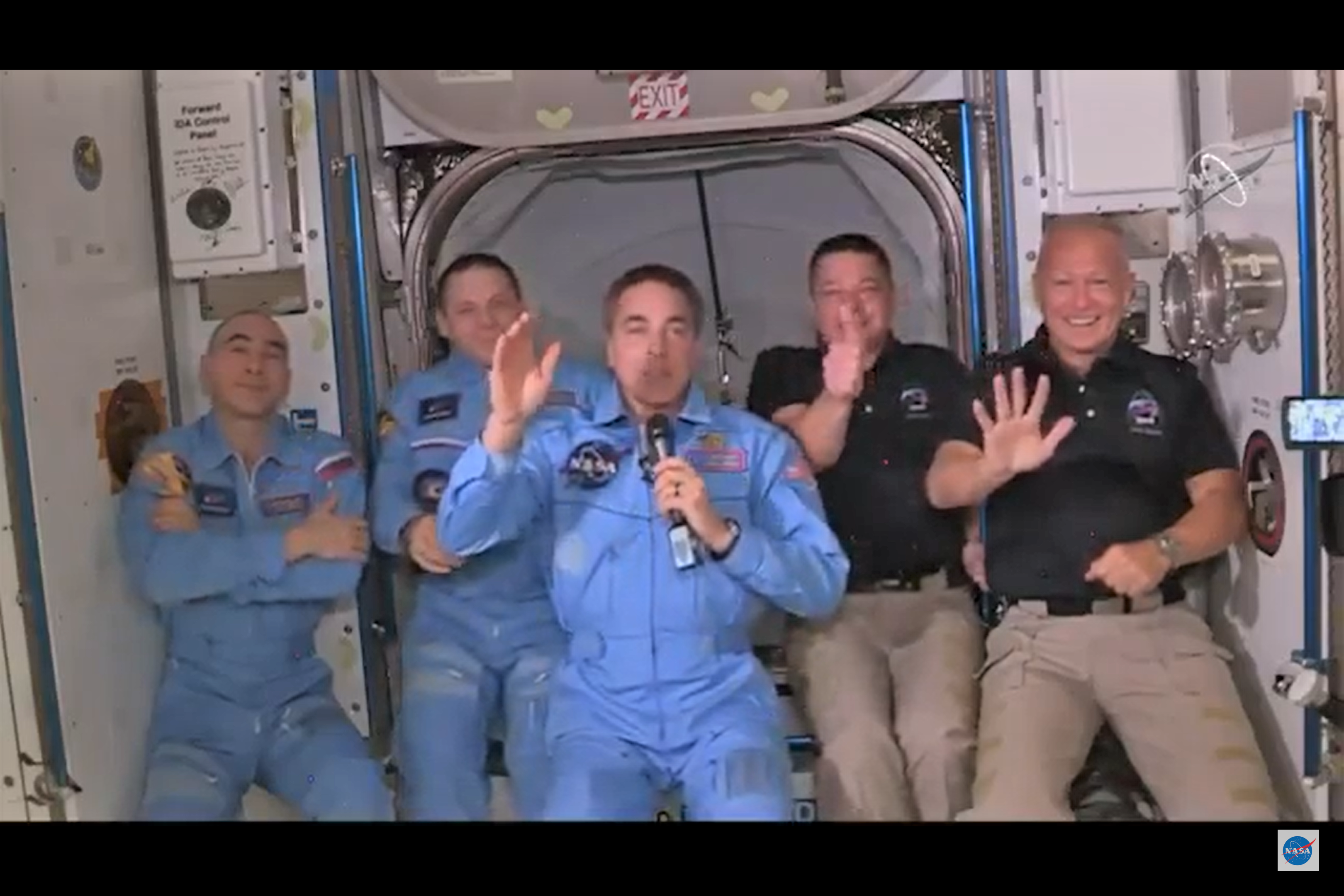
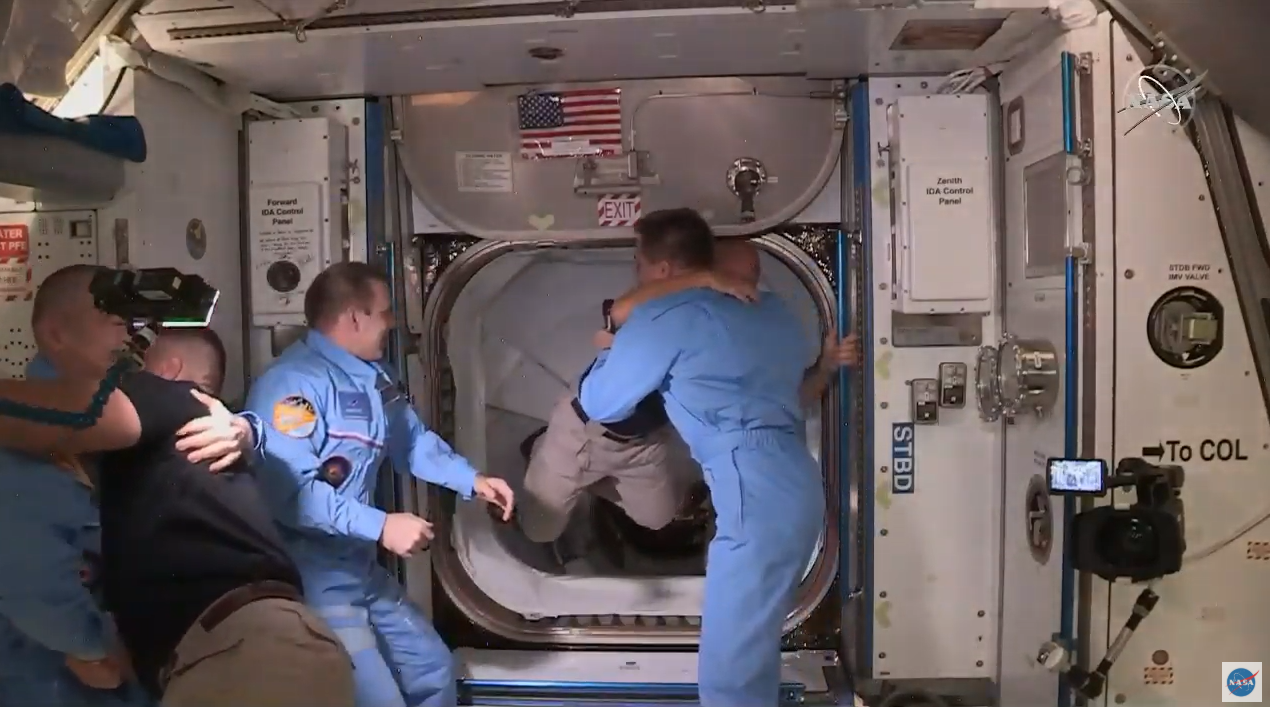
Behnken and Hurley are the first astronauts to fly SpaceX’s Crew Dragon to the station.
They were welcomed as crew members of Expedition 63 by fellow NASA astronaut Chris Cassidy and two Russian cosmonauts Anatoly Ivanishin and Ivan Vagner.
This is the first time in human history @NASA_Astronauts have entered the @Space_Station from a commercially-made spacecraft. @AstroBehnken and @Astro_Doug have finally arrived to the orbiting laboratory in @SpaceX's Dragon Endeavour spacecraft. pic.twitter.com/3t9Ogtpik4
— NASA (@NASA) May 31, 2020
In fact Behnken and fellow NASA astronaut Chris Cassidy have conducted three EVA space walks so far to swap out Lithium ion batteries recently brought to the ISS by the Japanese HTV-9 cargo ship.
See this tweet pic from the June 26 EVA by Behnken and Cassidy as they work to significantly upgrade the station power system.
“Yesterday @Astro_SEAL snapped this shot from our worksite on @Space_Station – @SpaceX’s Crew Dragon and @JAXA_en’s HTV in clear view. Not bad for a view while working…,” Behnken tweeted.
Yesterday @Astro_SEAL snapped this shot from our worksite on @Space_Station – @SpaceX’s Crew Dragon and @JAXA_en’s HTV in clear view. Not bad for a view while working… pic.twitter.com/DsV5owA3P9
— Bob Behnken (@AstroBehnken) June 27, 2020
One more EVA is planned next week to complete the battery exchanges task on July 21.
The most recent spacewalk EVA-3 was completed on Thursday, July 16 and you can watch it in its entirety here:
Watch Live @NASA Space walk today by @Astro_SEAL & @AstroBehnken to install more new batteries and upgrade @Space_Station power system https://t.co/CVM10h7qHs
— Ken Kremer🇺🇦🇩🇪🇺🇸🚀🧪 (@ken_kremer) July 16, 2020
The Demo-2 crew will mostly likely be targeted for parachute assisted splashdown in the Atlantic Ocean with a return of Crew Dragon to Port Canaveral, Florida after retrieval out of the corrosive sea waters- if the weather is favorable.
Alternative splashdown locations include the Gulf of Mexico near Pensacola, FL.
SpaceX also successfully recovered the 16 story tall SpaceX Falcon 9 first stage from Demo-2 that landed atop the ‘Of Course I Still Love You’ (OCISLY) droneship some eight and a half minutes after launching at 3:22 p.m. ET Saturday May 30 sailed into the mouth of Port Canaveral past Jetty Park Pier two days later on Tuesday, June 2 at around 2 p.m. to the cheers of a few media and spectators gathered for the momentous occasion.
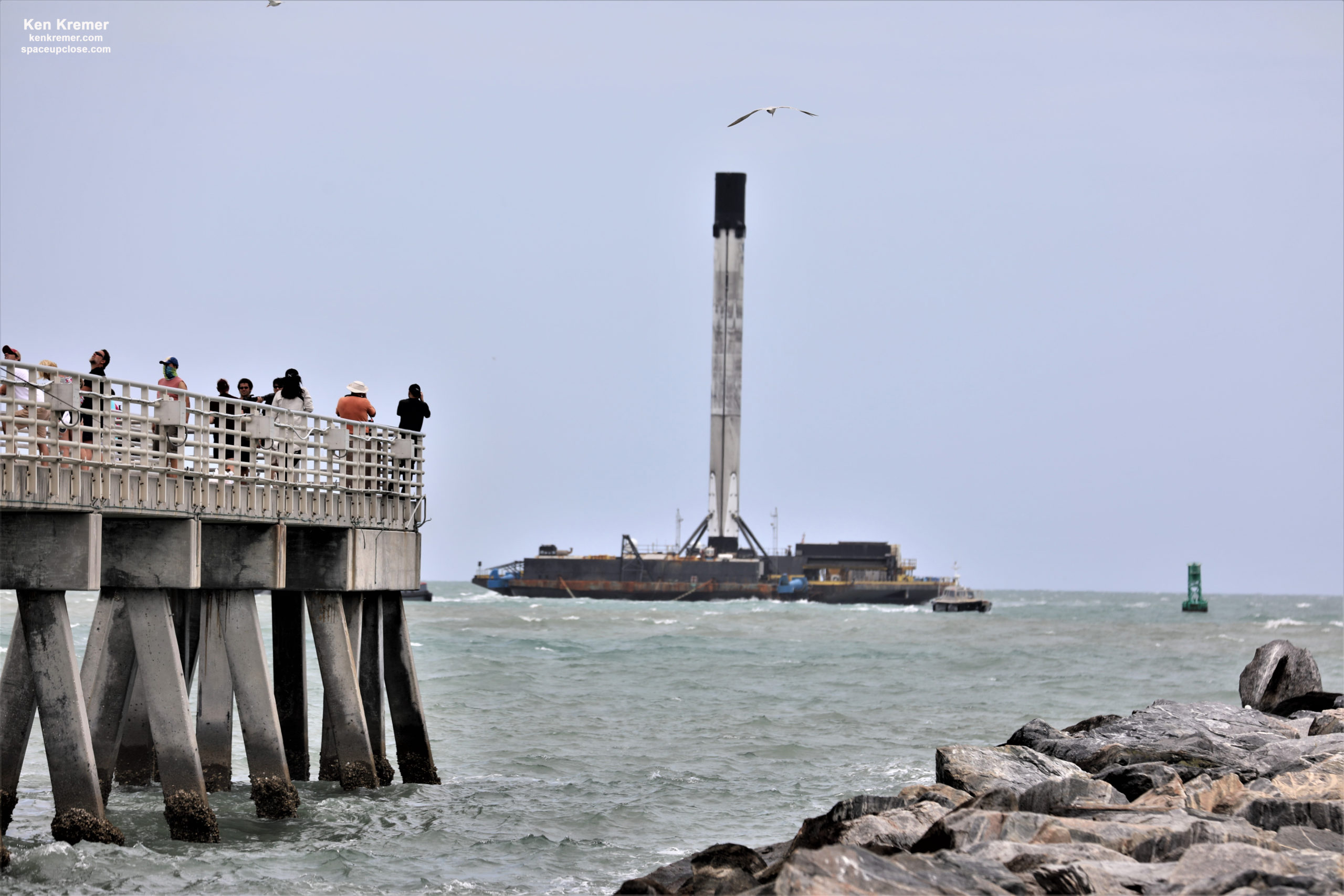
The Booster 1058.1 will eventually be recycled to a new launch since technicians then able to successfully retract the landing legs, lower it horizontal and transport it back to the Cape.
Enjoy our eyewitness Space UpClose photo gallery of the ring clamp and booster work and departure for the Cape as well as the leg retraction and Port arrival earlier of the launched and landed Falcon 9 booster 1058.1 standing both vertical and resting horizonal throughout the week of the SpaceX crane crew efforts ongoing at Port Canaveral.
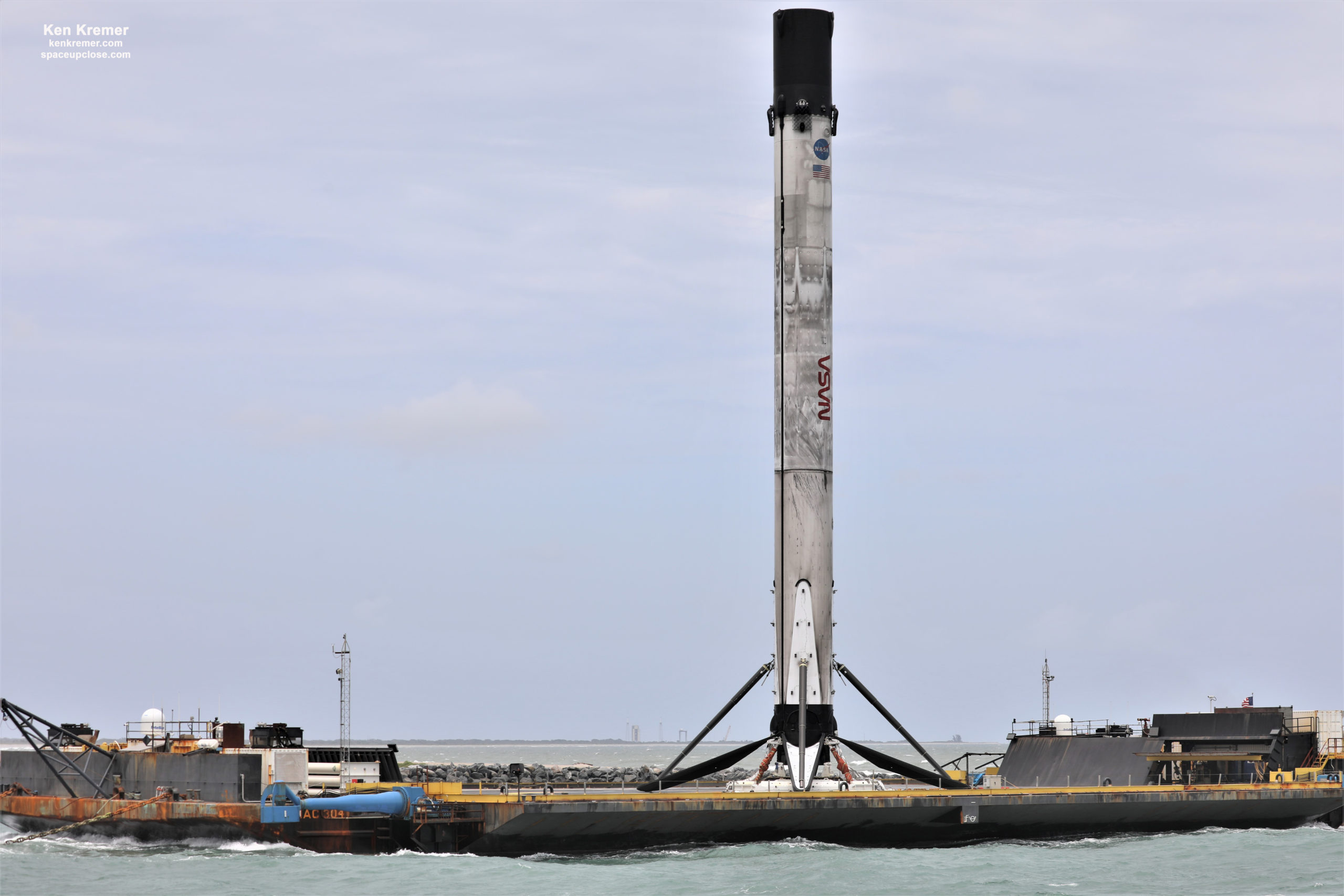
Both the SpaceX Crew Dragon and competing Boeing Starliner commercial spacecraft were developed to restore US human spaceflight and fly our astronauts to low earth orbit and the ISS with funding under the auspices of NASA’s Commercial Crew Program.
In another historic first the Demo-2 mission marks the first time in history that NASA astronauts have launched from American soil in a commercially built and operated American crew spacecraft on its way to the International Space Station.
The veteran pair launched aboard a commercial SpaceX Crew Dragon spacecraft on the company’s Falcon 9 rocket and flew to the International Space Station (ISS) on the Demo-2 test flight which also counts as the first crewed mission for the agency’s Commercial Crew Program.
Watch my commentary at Wesh 2 NBC TV News Orlando on June 2 about the booster arrival in Port and its meaning:
https://www.wesh.com/article/historic-falcon-9-rocket-astronauts-back-in-brevard-county/32746787
Watch my live Jun 1 interview on TRT about the launch and successful arrival and docking:
Watch my live SpaceX Demo-2 launch commentary from the 1st attempt with CBS 12 here for a full hour May 27:
SPACE: BACK TO THE FUTURE: Watch CBS12 News' special report on today's historic SpaceX launch. Read more: https://t.co/OeyJXlv0Wq https://t.co/O2DPRVrIzQ
— WPEC CBS12 News (@CBS12) May 27, 2020
Watch my prelaunch commentary at CBS 6 TV News Orlando here:
Watch my prelaunch commentary at Newsmax here:
Watch Ken’s continuing reports about Commercial Crew and Artemis and onsite for live reporting of upcoming and recent SpaceX and ULA launches including Demo-2, Starlink, X-37B, Solar Orbiter, Mars 2020 and more at the Kennedy Space Center and Cape Canaveral Space Force Station.
Stay tuned here for Ken’s continuing Earth and Planetary science and human spaceflight news: www.kenkremer.com –www.spaceupclose.com – twitter @ken_kremer – email: ken at kenkremer.com
Dr. Kremer is a research scientist and journalist based in the KSC area, active in outreach and interviewed regularly on TV and radio about space topics.
………….
Ken’s photos are for sale and he is available for lectures and outreach events
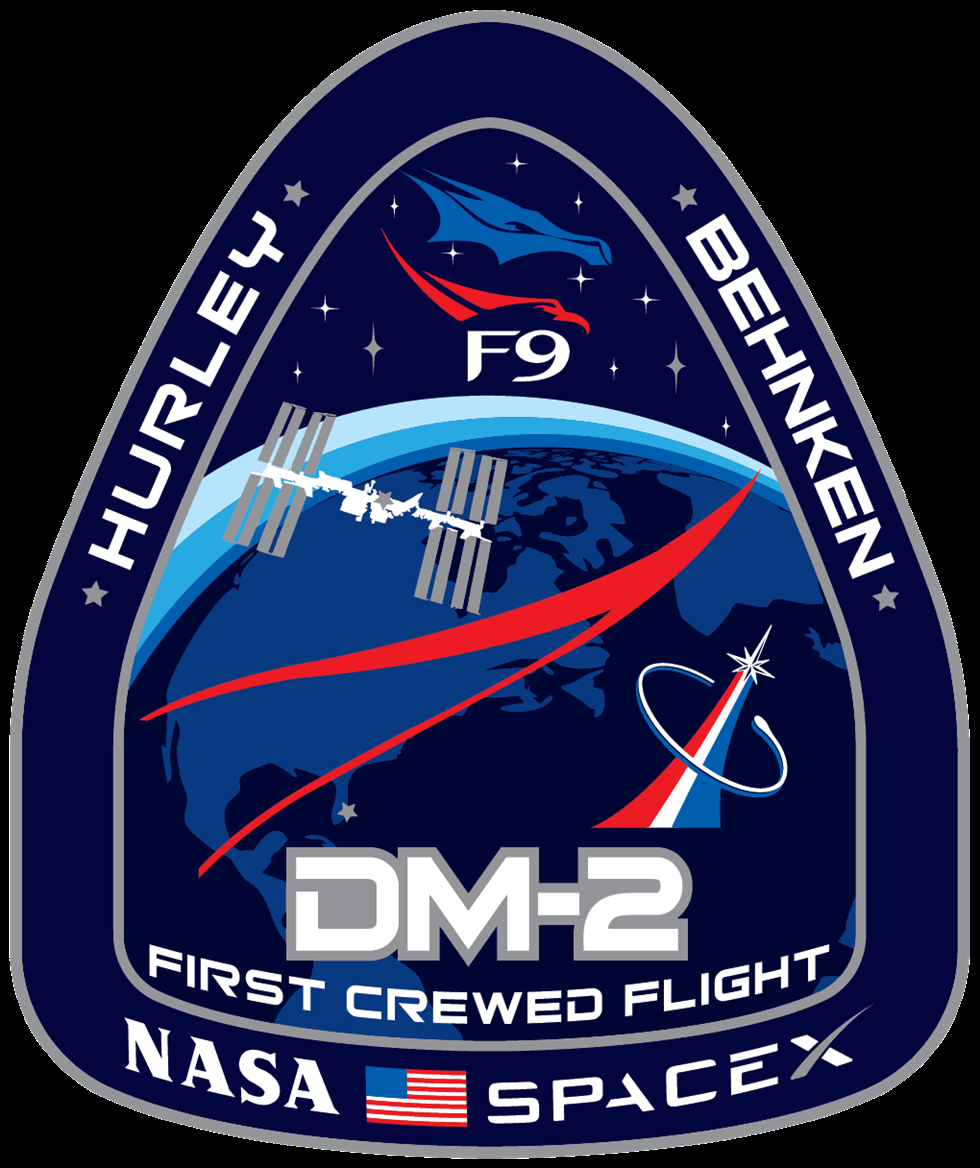
x




